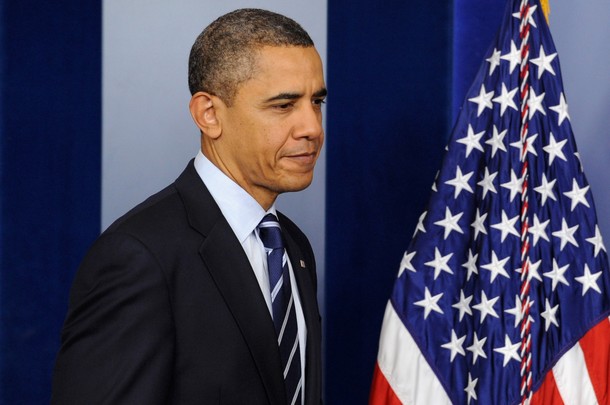About eight decades ago, the great American humorist Will Rogers wryly observed that whenever Congress wanted to play a joke on its constituents, it passed a law. And more sarcastically, Rogers concluded that every law Congress passed was a joke.
Unfortunately, Rogers’ dark humor applies to the state of domestic politics and even U.S. presidential elections.
In these elections, the winner says votes have consequences, meaning a “mandate” to govern. Except, given a divided government and the arcane rules of the U.S. Senate for a “super majority” to defeat a filibuster, a real mandate only works when one party controls all three houses of government and at least 60 votes in the Senate.
With the so-called fiscal cliff less than three weeks away and political posturing on both ends of Pennsylvania Avenue overwhelming serious governing, this is turning into a very bad joke for Americans.
Taken more broadly, things aren’t going well for the United States abroad either. This is no joking matter. The war and then the peace in Iraq have proven disastrous. Afghanistan’s future depends on its ability to sustain its own security forces who are dependent on a long-term and robust presence of U.S. military might and money to provide the vital aviation, intelligence, logistics, advisory and fire support to overcome the persistent insurgency.
Egypt, Syria and swaths of Africa are wracked with violence and growing ungovernability. Europe remains mired in its financial and economic crises. And, yes, South and East Asia are rife with tension and many potential points of conflict.
This column has often referred to this kaleidoscope of roiling events as July 1914 in slow motion.
Interestingly, U.S. President Barack Obama has more latitude to deal with foreign policy matters than the looming fiscal cliff. The reason is painfully clear and the result of a very good idea of our founding fathers gone adrift.
A political system of divided government and checks and balances designed by the best minds of the 18th century presently seems unworkable in the 21st.
Gerrymandered voting districts and an evenly divided electorate mean that no one party will control government with a super majority to force legislation into law. Alas, going over the cliff, as painful as it will be and with repercussions that could induce a recession or worse, is perhaps the only way to reconcile the irreconcilable ideologies dividing Republicans and Democrats. To be blunt, one party appears to have lost its mind, the other its soul. People can decide which is which.
But, as Obama fields his national security team, there is opportunity. The ideal candidate for secretary of state, if he were to take the position, is U.S. Sen. John Kerry, D-Mass., with impeccable credentials including long service on and as chairman of the Senate Foreign Relations Committee.
While the president might prefer U.N. Ambassador Susan Rice, the issue here isn’t the Benghazi brouhaha or any financial holdings she and her husband may have. Rice failed at convincing a number of senators of her suitability including moderate Republicans. Further, fellow U.N. representatives don’t hold her in terribly high regard.
Since the fiscal and economic issues are far more important priorities for the nation, the president should husband his political capital and not risk a tough confirmation fight that would only delay getting a new team in place.
At defense, while there are many excellent candidates, former Sen. Chuck Hagel, R-Neb., should top that list. His experience in the private sector, two terms in the Senate, on the defense policy board and co-chairman of the president’s intelligence advisory board and, most importantly, thoughtful understanding of national security are gold plated qualifications for the post. And, as a sergeant in Vietnam, Hagel was twice wounded in action and decorated for gallantry. That alone won’t guarantee a good secretary but it certainly should impress members of the military from private to general.
Should this happen, four (not three) former senators will have the reins for the nation’s security: Messer’s Obama, Vice President Joe Biden and Senators Kerry and Hagel.
The issue is whether the president fully appreciates the complexity, volatility and potential for crises the current international environment poses. Former and soon to be former secretaries Robert Gates and Leon Panetta at defense and former Sen. Hillary Clinton at state provided a strong team. But an even stronger team is needed.
The world need not be defined by the pessimism of Hobbes or the naivete of Voltaire’s Professor Pangloss. While the political process of governing may indeed be Rogers’ idea of a bad joke gone wrong, a ray of hope can break through this gloomy picture. While hope is never a strategy, Obama does have an opportunity if he chooses to exercise it.
Harlan Ullman is senior advisor at the Atlantic Council, and chairman of the Killowen Group that advises leaders of government and business. This article was syndicated by UPI.
Image: getty%207%2018%2012%20Obama_0.jpg
